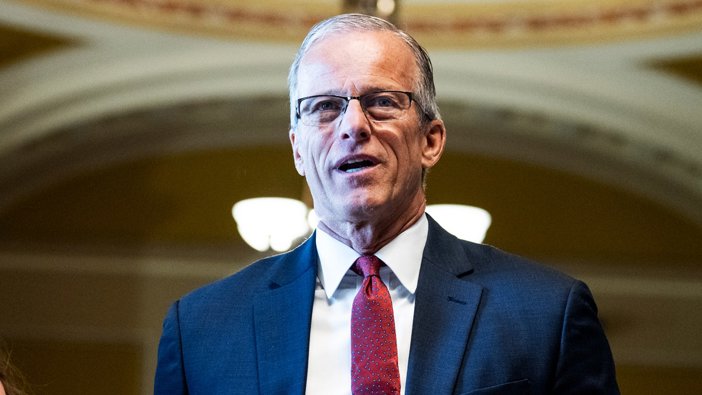
Senate Divided on Funding After GOP Clawback Package
Senate Democrats threaten to block bipartisan spending bills after Republicans pass $9B clawback, risking government shutdown.
Senate Faces High-Stakes Vote Amid Growing Acrimony
The United States Senate is bracing for a pivotal vote on a suite of appropriations bills, with the outcome poised to shape government funding in the months ahead and raise the specter of a partial shutdown. The vote, which is traditionally marked by bipartisan cooperation, has become mired in conflict as Senate Democrats signal readiness to block the spending measures in retaliation for recent Republican moves to slash funding.
The latest rift stems from Senate Republicans’ successful passage of President Donald Trump’s $9 billion clawback package last week, which targets foreign aid programs and public broadcasting outlets such as NPR and PBS for deep cuts. This action, carried out without Democratic support, has left many in Schumer’s caucus questioning the future of cross-party trust in the appropriations process.
Senate Minority Leader Chuck Schumer, D-N.Y., had previously cautioned that pushing through the clawback package could disrupt the tradition of bipartisanship that underpins federal budget negotiations. “Nothing is guaranteed,” Schumer warned, as he criticized Republicans for undermining the collaborative approach typically seen in Senate appropriations. Schumer accused Senate Majority Leader John Thune, R-S.D., of calling for bipartisanship while simultaneously advancing partisan budget cuts, remarking, “He’s talking out of both sides of his mouth.”
For their part, Republican leaders argue that spending restraint is necessary and have called for Democratic cooperation to move appropriations forward. Thune emphasized that any spending bills must be passed with significant support from both parties, noting, “It was deeply disappointing to hear the Democrat leader threaten to shut down the government if Republicans dared to pass legislation to trim just one-tenth of 1% of the federal budget.” The forthcoming vote will provide insight into the level of bipartisan support for military construction, veterans affairs, agriculture, and legislative branch funding bills, all of which require at least 60 votes to advance.
Potential Stalemate Could Lead to Government Shutdown
Senate Democrats are scheduled to meet ahead of the vote to determine whether to support the anticipated funding package. Some, including Sen. Chris Murphy, D-Conn., say Democratic resistance is the result of GOP actions that threaten to render Democratic votes meaningless. “We can’t do appropriations bills with this escalating promise from the administration to cancel all Democratic spending as soon as we vote for it,” Murphy asserted, arguing that Republicans have created a crisis that only they can resolve.
Sen. Mike Rounds, R-S.D., a member of the Senate Appropriations Committee, expressed hope that lawmakers could ultimately reach agreement, but acknowledged that continued Democratic resistance may force Congress to resort to another continuing resolution—a temporary measure to extend government funding without resolving underlying disputes. “If Democrats are willing to give up on a bipartisan process, it would only be to the advantage of the Trump administration,” Rounds said, underscoring the high stakes for both parties.
Among the appropriations bills under consideration are those funding military construction, the Department of Veterans Affairs, agriculture, the Food and Drug Administration, and the legislative branch. With the September 30 deadline for government funding fast approaching, the Senate’s actions this week may determine whether the federal government enters a new fiscal year with a budget or faces yet another funding extension—or even a partial shutdown.
As party leaders spar over process and priorities, the future of bipartisan appropriations—and the stability of government operations—hangs in the balance. The outcome of Tuesday’s vote will offer a clear signal of how much cooperation, if any, remains in the upper chamber.






